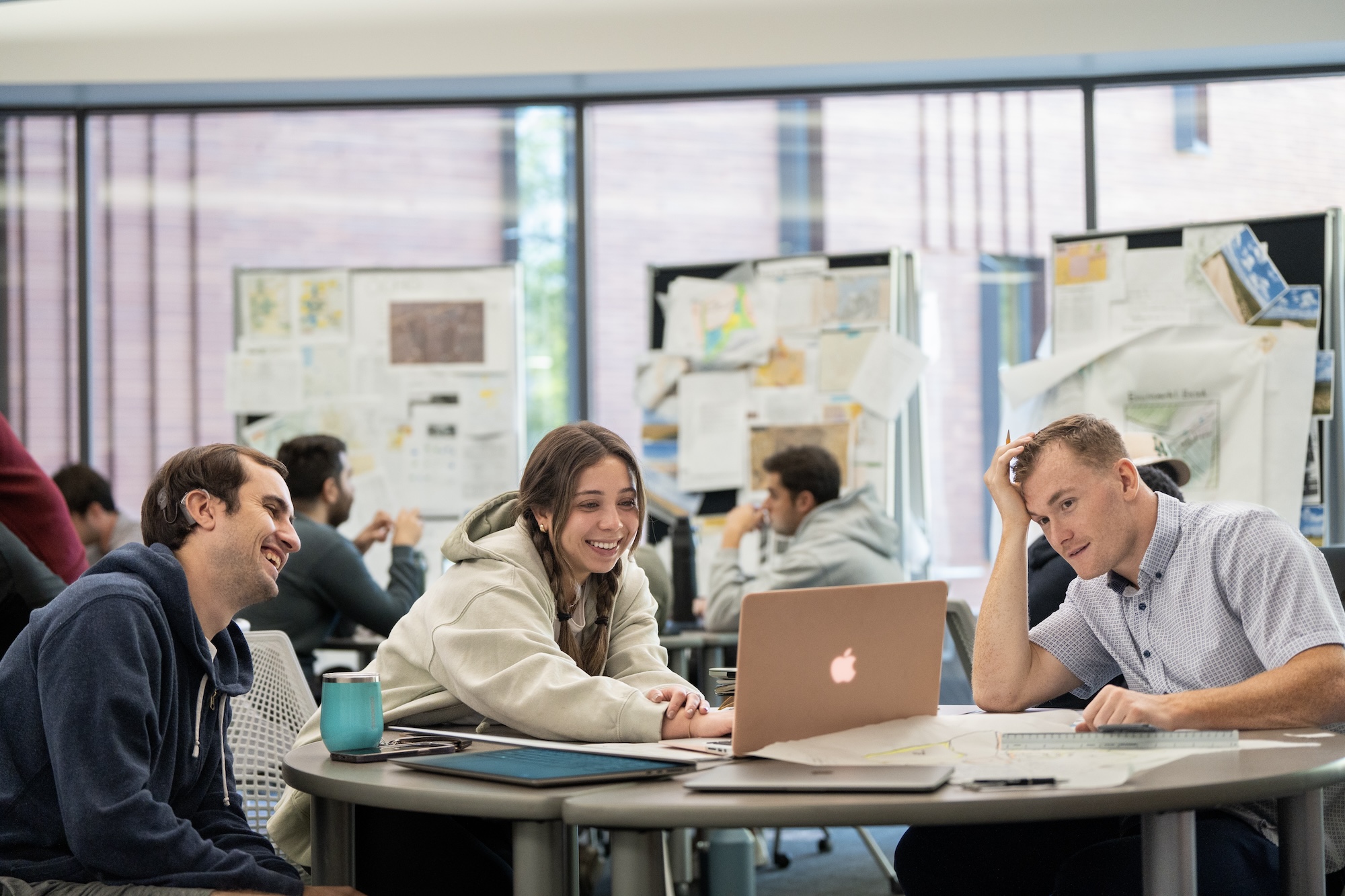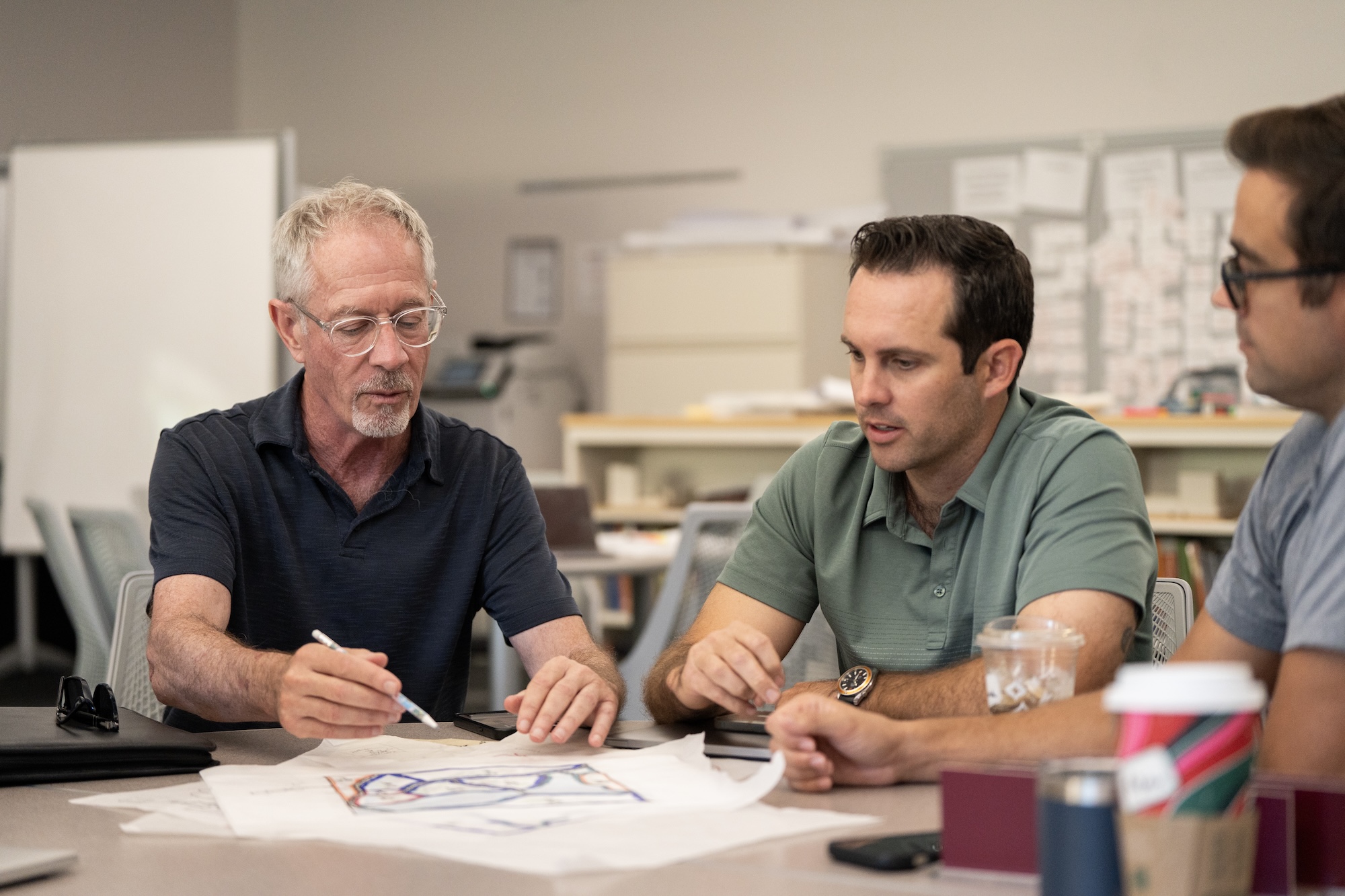
Master of Real Estate Development program uses real-world projects to create outstanding graduates
The W. P. Carey School of Business Master of Real Estate Development wasn't designed to simply give students knowledge about real estate. It was designed to teach the business of real estate and transform students into critically thinking, ethically minded industry leaders.
The W. P. Carey School of Business Master of Real Estate Development wasn't designed to simply give students knowledge about real estate. It was designed to teach the business of real estate and transform students into critically thinking, ethically minded industry leaders.
This objective isn't met by simply listening to lectures or doing a few case studies. It is achieved through an intensive nine-month master's program featuring classroom learning and hands-on, real projects that promote environmental and social-minded critical thinking, collaboration, and creativity to solve the problems that real estate professionals face every day. The program does this through a mid-career, full immersion, block class, cohort experiential process that mimics the business.
Real-world projects

The MRED program takes students beyond the classroom and theories with three applied synthesis projects that involve real-world problems and solutions. Synthesis projects are how students learn to apply what they learn in the classroom.
"People in the industry provide subject matter properties for our students to use, and that's how they apply what they're learning in the classroom in real time," says MRED Executive Director Mark Stapp. "They learn how to apply it in a professional setting so that when they leave the program, they're very comfortable not with just the subject matter, but how you use it in a professional environment."
These projects each cover a different area of the real estate industry – residential, commercial, and mixed-use – to expose students to the issues, regulations, and ethical dilemmas they will potentially face in their careers. Graduates leave W. P. Carey with a foundation of experience and knowledge to start their career on the right path.
"I enjoyed how real the subject matter was," says alumna Denise Christensen (BS Finance '03, MRED '15). "We were working on real properties with real challenges, and we were working with mentors that are active in the industry."
Faculty and student relationships

The faculty in the MRED program have decades of experience in real estate and development, which allows them to share first-hand knowledge, stories, and advice with students. "We have practicing subject matter experts as our faculty," says Stapp.
The program takes a transdisciplinary approach to teaching real estate, a partnership of four different schools at ASU: the W. P. Carey School of Business, the Sandra Day O'Connor College of Law, the Herberger Institute for Design and the Arts, and the Del E. Webb School of Construction. This approach provides a fuller picture of everything that goes into real estate development.
"All the faculty are practitioners in their field," says alumnus Waseem Hamadeh (BS Finance '08, MRED '12). "They're not just educating you based on theory. They've lived through it. They've seen multiple market cycles. You can have a conversation with them as peers; it's not just a professor-student relationship."
Close relationships are also formed between students, as cohort-based classes and group projects mean MRED students are constantly working together and learning from each other.
"You're doing the same thing the same way at the same time with all of the people you're in the program with," says Stapp. "That establishes an ethos and a relationship with your fellow students that exists well beyond the classroom."
Responsible real estate development
The MRED program at W. P. Carey emphasizes a community minded approach. Students learn to lead responsible and respectful development projects that put the environment, community, and people at the forefront with profits.
"I want our students to leave the program being strategic critical thinkers about the business of real estate," says Stapp. "The other, and I think equally important, objective we have is to teach our students to be socially and environmentally minded community builders. Real estate is a service. It's a service to society, and it exists in an interesting place that no other business exists within, and that is a nexus between society and business itself."
The transdisciplinary approach gives students a look at every aspect of the business and development process so they can understand the impact projects have on the world around them.
"There is significant wealth generated from real estate, but it's also the physical space that society functions within," says Stapp. "Not only that, but we also inextricably alter places. As a consequence, we have an ethical and moral responsibility. Our students have to not only understand the role they play in society, but that they have a responsibility to do things in such a way that supports society in a positive manner while seeking profit. It's important that students appreciate this fact."
Propel your career with an MRED from ASU
Request information directly from our graduate recruiting team. We can't wait to meet you!
Latest news
- W. P. Carey Undergraduate Co-op Program gives companies like Honeywell access to eager new talent
The W. P.
- Consumer confidence decreases as many grow concerned about financial prospects
A W. P.
- A connection that began at W. P. Carey comes full circle
W. P. Carey Cupids Maura Scott and Martin Mende return as faculty.